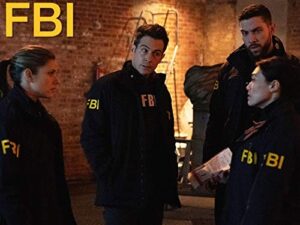
Introduction: The Relentless Pursuit of Truth
Behind every criminal case, there’s a story waiting to be uncovered. The FBI, America’s premier law enforcement agency, is known for its unwavering commitment to solving these mysteries. Whether it’s a high-profile case or a seemingly insignificant one, the FBI won’t stop until the story is told. But what does this dedication look like in practice? How does the FBI piece together the puzzle of a crime, and why does it matter?
In this article, we’ll dive deep into the world of the FBI and explore how their tireless efforts ensure that every case tells its full story. From the first clue to the final conviction, we’ll examine the process, the people, and the passion that drives the FBI to seek justice.
The FBI’s Mission: A Relentless Commitment to Justice
What Drives the FBI to Never Give Up?
The FBI’s mission is simple: to protect and defend the United States against terrorist and foreign intelligence threats, uphold and enforce the law, and uphold the Constitution. But beneath this mission lies an even more profound commitment—ensuring that every crime, big or small, is thoroughly investigated, and every story is told.
The FBI’s role is not just about catching criminals but about ensuring that justice is served. This means going beyond surface-level investigations and delving into the heart of each case, understanding the motives, and ensuring that the truth is revealed.
The Process: How the FBI Investigates Every Case
Step 1: Gathering Evidence
The investigation process begins with evidence. Whether it’s physical evidence found at a crime scene or digital footprints left behind, the FBI’s first priority is to gather all possible clues. Agents use cutting-edge technology and their vast network of resources to locate and preserve evidence, ensuring that no detail is overlooked.
For example, in cybercrimes, the FBI might trace IP addresses or track down hackers across the globe. In cases of violent crimes, they may rely on forensic analysis, such as DNA testing, to build a case.
Step 2: Analyzing the Evidence
Once evidence is gathered, the next step is analysis. The FBI employs specialists in various fields, from forensic experts to cyber analysts, who meticulously examine the data. This is where the real work begins—piecing together the evidence to form a coherent narrative of what happened.
For instance, in cases of fraud, financial experts will dig through mountains of paperwork, uncovering hidden transactions that reveal the true extent of the crime. In violent crime investigations, forensic pathologists work tirelessly to determine the cause of death and any other relevant details.
Step 3: Building the Story
With evidence in hand, the FBI’s agents begin to piece together the story behind the crime. This involves connecting the dots, interviewing witnesses, and sometimes even going undercover. The goal is not just to solve the crime but to understand the full scope of the situation.
It’s like solving a jigsaw puzzle—each piece of evidence contributes to the bigger picture. The FBI’s job is to ensure that every piece fits perfectly, and the full story emerges.

The People Behind the Investigations
FBI Agents: The Unsung Heroes
Behind every case, there’s a dedicated team of FBI agents. These individuals are often the unsung heroes, working tirelessly behind the scenes to bring justice to light. They are trained to think critically, act swiftly, and remain steadfast, no matter the challenges they face.
FBI agents often work long hours, sometimes in dangerous conditions, to ensure that every case is solved. Their work requires not just intelligence but also empathy, as they interact with victims, families, and witnesses, ensuring that everyone’s voice is heard.
FBI Analysts: The Storytellers
While agents are the ones out in the field, FBI analysts are the ones who bring the story to life. They sift through data, identify patterns, and provide insights that help agents understand the bigger picture. Analysts often work behind the scenes, connecting the dots and ensuring that no lead goes unexplored.
Their role is crucial because, without them, many cases would remain unsolved. They are the storytellers who take raw evidence and transform it into a narrative that makes sense.
Why Every Story Matters
The Ripple Effect of Justice
When the FBI solves a case, it’s not just about bringing a criminal to justice. It’s about providing closure to victims and their families, sending a message to society, and ensuring that justice is served. Each case, no matter how big or small, has a ripple effect that extends far beyond the courtroom.
Consider a case of a missing child. The FBI’s efforts to find the child and bring the responsible party to justice don’t just help the family—it helps restore faith in the justice system and shows the public that the FBI is always there, working to protect them.
The Importance of Telling the Full Story
It’s not enough for the FBI to simply solve a case. They must ensure that the full story is told. This means understanding the motivations behind the crime, the impact on the victims, and the broader societal implications. By telling the complete story, the FBI ensures that justice is not just served but understood.
Challenges the FBI Faces in Their Investigations
The Complexity of Modern Crimes
In today’s world, crimes are becoming increasingly complex. From cybercrimes to international terrorism, the FBI faces new challenges every day. Investigations now often span multiple countries, requiring collaboration with law enforcement agencies worldwide.
The rise of digital crimes has also made investigations more difficult. Hackers can hide behind layers of encryption, and criminals can use the internet to commit crimes without ever stepping foot in the physical world. Despite these challenges, the FBI has adapted, using cutting-edge technology and global partnerships to stay ahead of the curve.
The Emotional Toll on Agents
Investigating heinous crimes can take an emotional toll on FBI agents. Many agents deal with disturbing cases involving violence, abuse, and death. The emotional strain can be immense, and it’s not uncommon for agents to experience burnout or trauma. However, despite these challenges, they continue their work, driven by their commitment to justice.
The FBI’s Role in National Security
Preventing Terrorism: A Vital Part of the Story
One of the FBI’s most important roles is preventing terrorism. The agency works tirelessly to identify and dismantle terrorist networks, preventing attacks before they happen. This involves a combination of intelligence gathering, surveillance, and international cooperation.
By uncovering terrorist plots and bringing those responsible to justice, the FBI helps protect the nation and ensure that the stories of innocent victims are never written.
Conclusion: The FBI’s Unyielding Dedication to Justice
The FBI’s dedication to telling every story is unwavering. Behind every case is a complex narrative that deserves to be told, and the FBI is committed to uncovering it, no matter how long it takes. Whether it’s a case of cybercrime, terrorism, or violent crime, the FBI’s mission is clear: to seek the truth and ensure justice is served.
Through their tireless efforts, the FBI not only solves crimes but also restores faith in the justice system. Their work is not just about catching criminals; it’s about telling the stories that matter, ensuring that every victim’s voice is heard, and every case is solved.
FAQs
1. How long does it typically take the FBI to solve a case?
The time it takes to solve a case varies depending on the complexity of the crime. Some cases can be solved in a matter of weeks, while others may take years of investigation.
2. How does the FBI handle cybercrime investigations?
The FBI uses advanced technology and works closely with other agencies to investigate cybercrimes. They trace digital footprints, hack into encrypted systems, and track down cybercriminals.
3. Does the FBI only work on federal cases?
While the FBI primarily handles federal cases, they often work with local law enforcement on cases that cross state lines or involve national security.
4. How does the FBI ensure that justice is served for victims?
The FBI ensures justice by thoroughly investigating each case, gathering all relevant evidence, and presenting a full and accurate picture of the crime in court.
5. Can the FBI solve cold cases?
Yes, the FBI has a dedicated team that works on cold cases, using new technology and investigative techniques to reopen and solve cases that have gone unsolved for years.